The Other Place at the National Theatre
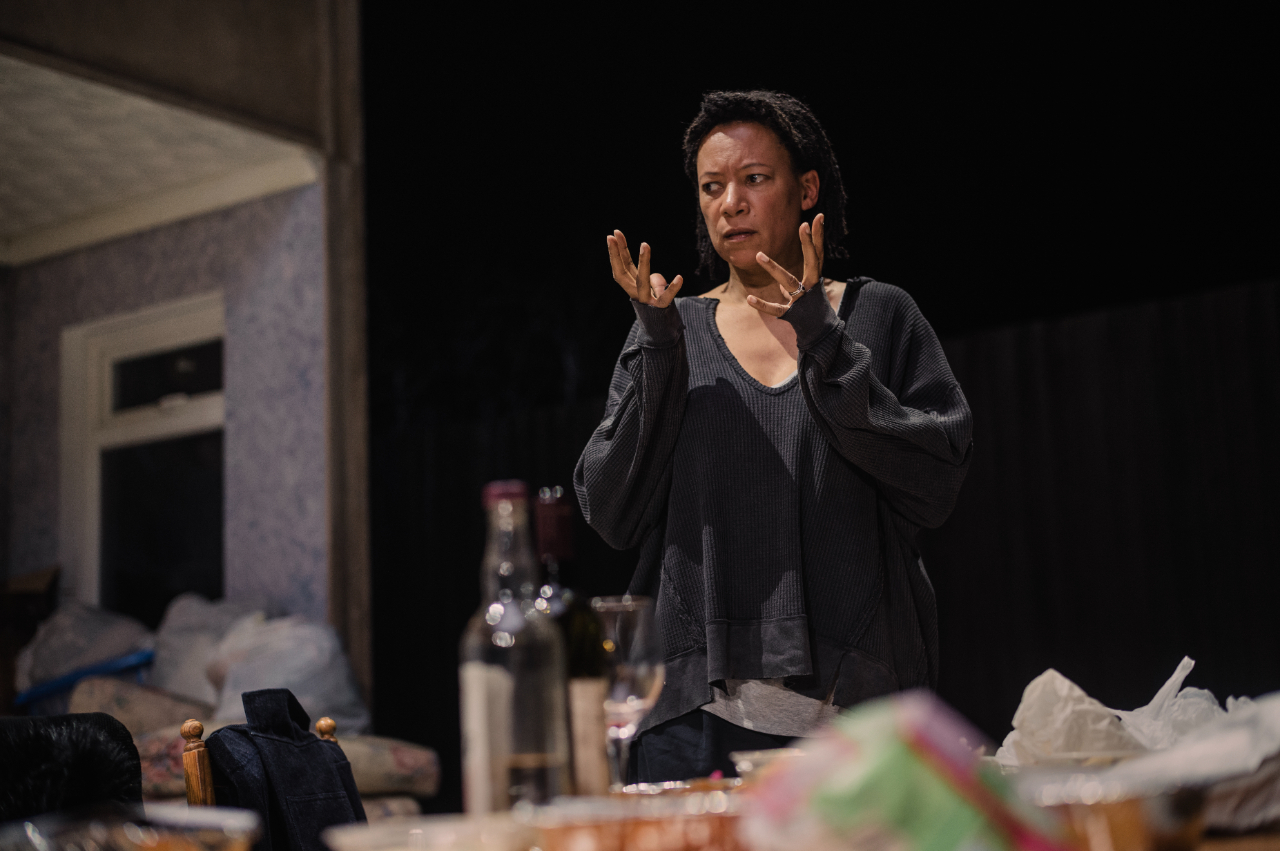
This dark and twisted grief-ridden play is a delightfully uncomfortable watch from start to finish.
Two estranged sisters, Issy (Alison Oliver) and Annie (Emma D’Arcy), converge at their childhood home on the anniversary of their father’s death. Their uncle, Chris (Tobias Menzies), seeking a new beginning, has renovated the house with his wife Erica (Nina Sosanya), her son Leni (Lee Braithwaite), with the help of friend-cum-project manager Terry (Jerry Killick).
Within the juxtaposition of old memories and new constructions, primal emotions collide – shame, loss and avarice intertwine as family members grapple with conflicting visions of what lies ahead. Where Izzy is desperate to move on with her life, it becomes quickly apparent that her sister refuses to let the past lie, no matter how hard the truth may be to face. The arrival of Annie disrupts the brittle peace as she confronts long-buried traumas and demands accountability.
Annie enters like a hurricane into a house which is almost unrecognisable, with major construction underway as Chris and Erica attempt to build a new life as distanced as possible from the family’s tragic past. An open-plan kitchen counter, dining table, porch and landing, are separated by floor-to-window sliding doors, which provide a barrier between inside and out. From the staircase that seems to convincingly lead upstairs, to the breeze blowing through the tops of the trees in the garden, Rosanna Vize’s set design does enough to immerse and entertain the audience for the one-hour 20 run time without being too overly complex as to distract from the impressive acting or plot.
Chris and Erika are both obsessed with letting in as much light into their new home as possible, striving to move away from the doom and gloom of history. Yet the light that floods into the house also unearths hidden truths and distant memories that refuse to be ignored. James Farncombe’s artificial light beams onto the stage through the use of a huge overhanging light board, which pivots depending on internal or external scenes. A yellow warming glow conjures the safety of home the sisters have always craved, contrasted with a bright, searing white light, accompanied by Yannis Philippakis’s haunting ancestral rhythms, which cut through this cosy and comfortable falsity, a reminder of a trauma-filled past, rearing its ugly head.
Annie often finds herself on both sides of this barrier of inner and outer – a wounded and troubled girl in need of help, or a disruptive and toxic troublemaker to be shunned. D’Arcy’s portrayal is raw, demanding deep sympathy and intense frustration towards their character. Issy’s attentiveness and frustrated desperation to connect with her sister is painfully expressed through Oliver’s heartfelt pleading. Homemaker Erica is desperate for a fresh start. Sosanya balances motherly instinct with navigating the awkwardness around her step-nieces, with the young Braithwaite providing small amounts of lighthearted diversion. Similarly, Killick presents himself as a character of comic relief, yet, this jovial family bickering is clearly underpinned by something deeper and darker. Menzies begins as a strong and confident man of the house, before slowly breaking down and regressing into the past. It is not clear whether his character fully accepts responsibility for his actions. The large glass windows instead, for him, act as a mirror which he refuses to look into, reflecting back to him his wrongdoings.
The reimagining of Greek tragedies is a Theatreland hit at the moment, with Robert Icke’s Oedipus (featuring Mark Strong and Lesley Manville) playing at Wyndham’s Theatre, as well as The Old Vic’s Ella Hickson telling (welcoming Rami Malek and Indira Varma), or Sophocles’s ELEKTRA coming to the Duke of York’s Theatre (with Brie Larson). Alexander Zeldin’s take on Sophocles’s Antigone utilises well-known Greek tragedy tropes to create something fresh and simultaneously toe-curling. When brought face to face with the trauma, guilt and grief of others, the play refuses to let us turn away, no matter how hard it is to look.
Olivia Gardener
Photos: Sarah Lee
The Other Place is at the National Theatre from 9th October until 9th November 2024. For further information or to book visit the theatre’s website here.

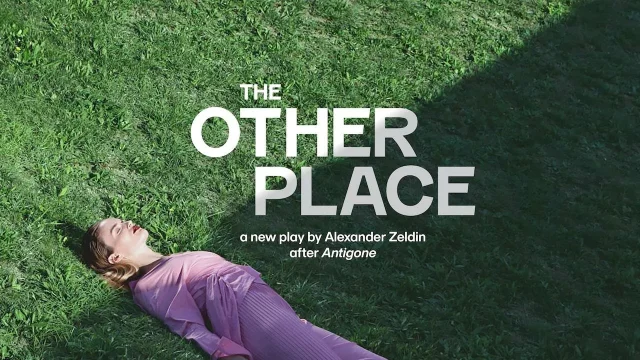
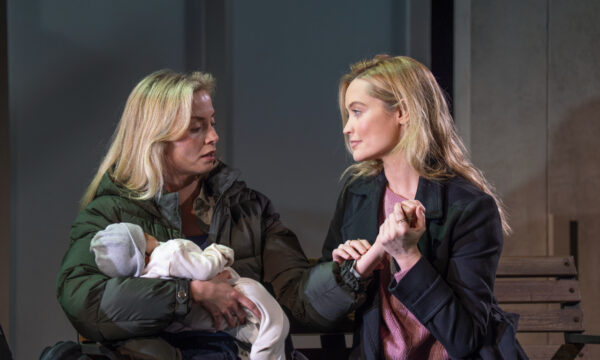
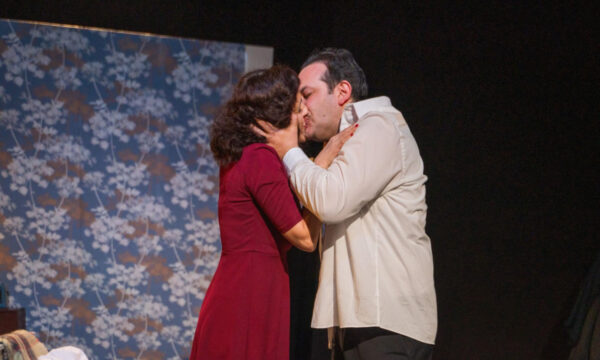
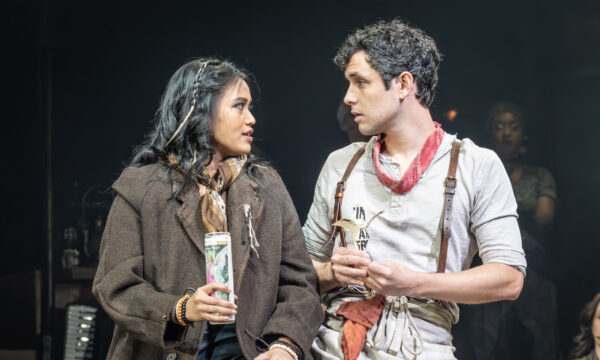
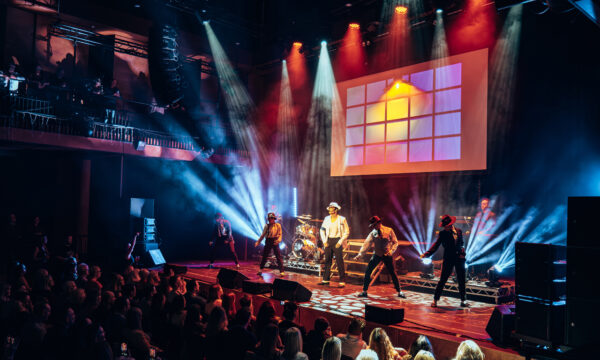
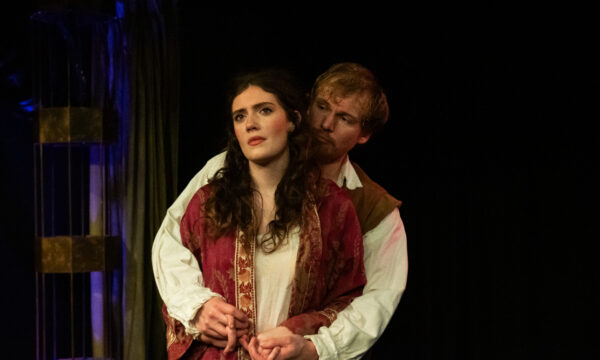
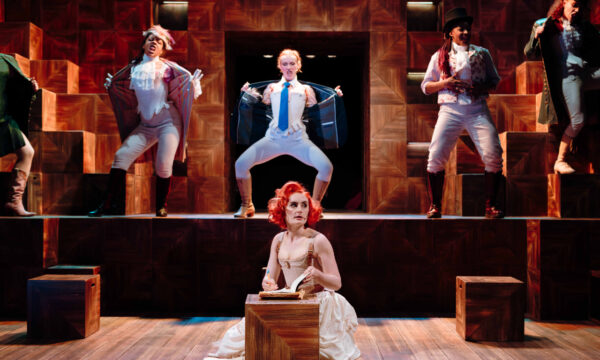
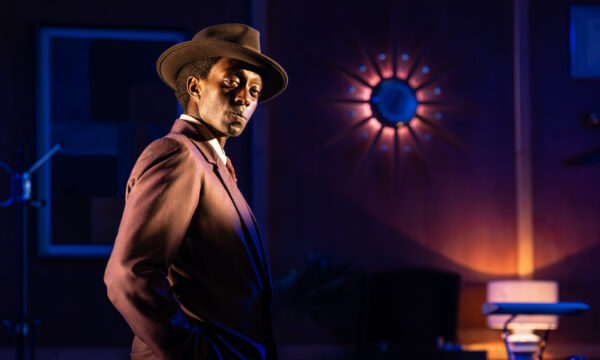
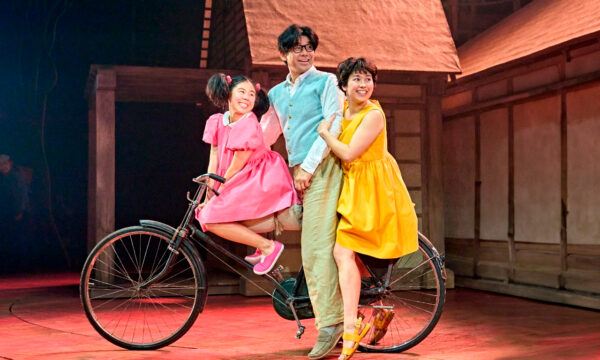









Facebook
Twitter
Instagram
YouTube
RSS